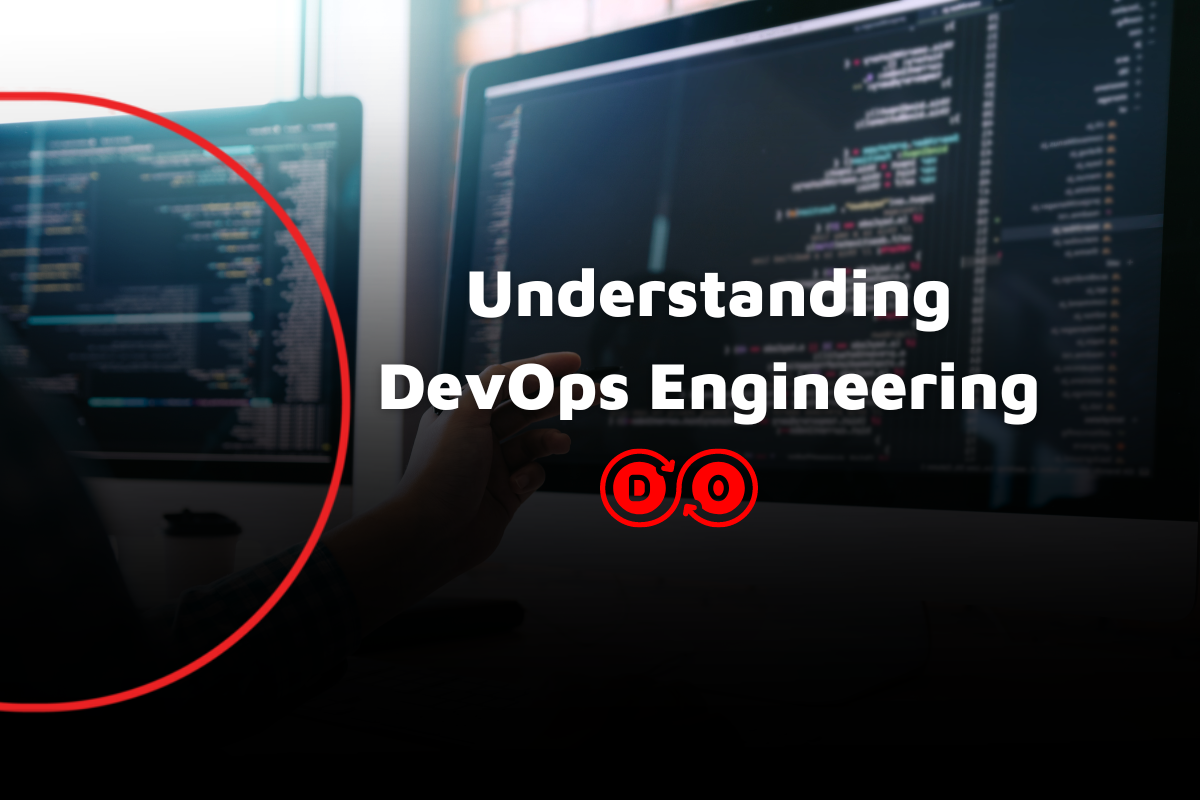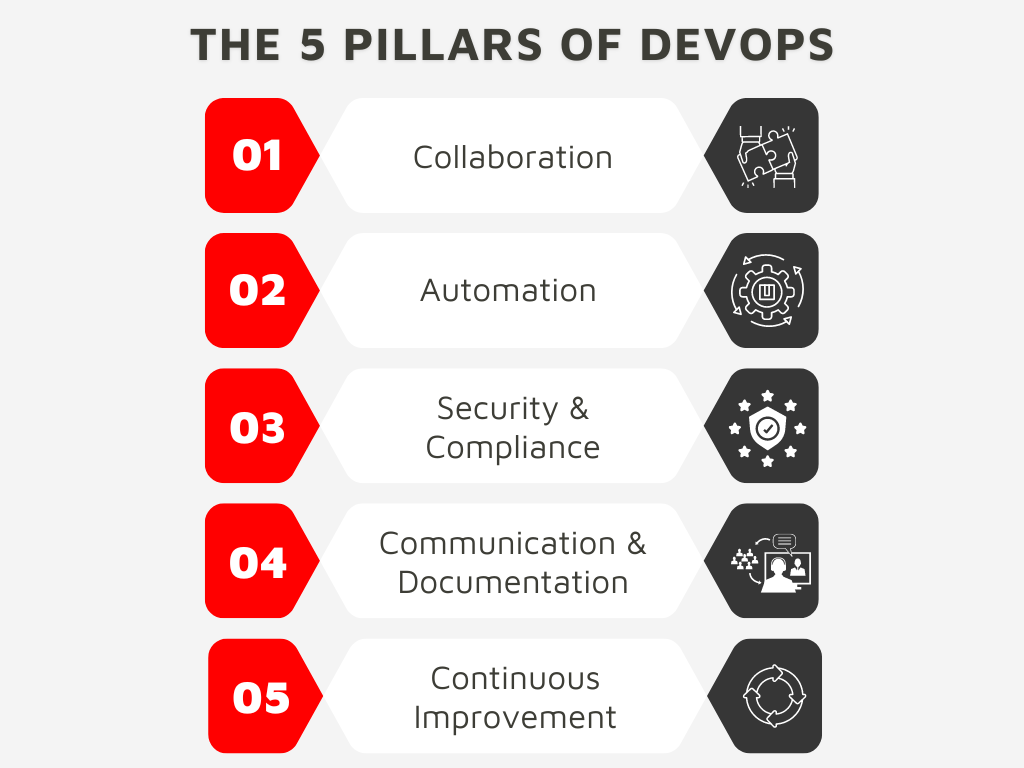Introduction to DevOps Engineering
28 February 2023 | Noor Khan

DevOps engineering introduces new processes, tools, and team changes that balance the needs of the software lifecycle (from coding and deployment, to maintenance and updates), with strategic automation that allows for faster development times and release of products. In this article, we give you an introduction to DevOps Engineering and what it can offer your business.
The DevOps team are instrumental in:
- Coding
- Application management
- Application maintenance
- Understanding the development life cycle of the project or software
The DevOps model requires effective use of tooling in order to make rapid change, allow for reliable deployment and allow engineers to stay in control of high velocity projects that may otherwise be slowed down or impacted by non-automated processes.
The discipline is considered important because of this faster development of new products, with easier maintenance of existing deployments, and is an inclusive approach which combines development and operations in a way that unifies teams and simplifies communications.
Building a DevOps team
In order to run a team with the DevOps process, DevOps Engineers have to work with, and have knowledge of, a wide range of tools, platforms, and software in both development and operations, that allow for the unification and automation of processes, and DevOps engineers must be highly skilled in:
- Automation
- Monitoring
- Testing
- Configuring
- Networking
- Infrastructure as Code (IaC)
What are the five pillars of DevOps?
The DevOps process is structured around five pillars:

Collaboration
Working together, communicating effectively, and setting up processes that optimise this process is crucial for DevOps engineering to take place, without a robust support and monitoring structure, the discipline will not work properly.
Automation and workflows
In order to engineer and develop at the highest industry standards, there have to be consistent workflows, so each stage of development can be seamlessly moved into the next. DevOps has automation built into these workflows in order to provide faster speeds, without compromising quality.
Security and compliance
Software development has to be secure and compliant with relevant legal obligations, and engineers have to ensure that their finished products are fit for this purpose. The DevOps process requires that development security operations (DevSecOps) are not just left to one team, but a consideration that every team member has to work with.
Communication and documentation
There are no user manuals with the DevOps process, the need for change and the resolution of issues comes rapidly. Communication and documentation are essential in order for teams to work effectively together, and for incoming engineers or other staff to be able to look at a project and understand what is being done.
Continuous improvement
As DevOps tasks are non-linear in their testing, developing, and rolling out – the amount of time spent on the process is greatly reduced and supported by automated incident monitoring, team members have the ability to handle matters quickly and effectively, as well as continue pushing for continuous improvement that not only drives the project forward but the level of the team and the business as a whole.
The benefits of DevOps approach
The DevOps approach aims to streamline interactions, ensure that teams are working together effectively, and automate to reduce time and resource wastage.
Some of the key benefits that come from utilising DevOps engineering or working with DevOps engineers include:
- Stable operating environments.
Because DevOps involves testing, collaborating across all areas, and automated warnings and escalation of issue resolution, operating environments become more stable. - Faster development of products.
As the process is focused on testing, integrating, and rolling out code changes in parallel, instead of a traditional linear fashion, deployment speed can be vastly increased. - Integration of automation into teams and projects.
By using a process that makes automation a key aspect of the working environment, teams become more proficient with using it, and identifying areas which can be automated – saving time, money, and resources in the process. - Increased resource utilisation.
Once the DevOps processes are in place, teams can focus their energies and innovation on parts of the project that need their attention, or undertaking new activities, knowing that should an issue occur, the DevOps structure will issue a warning or notification to the correct team members. - Non-linear approach is more in line with current development processes.
Whilst software development has largely been a linear practice, the technological advances and speed of change in the way the world now works, means that companies cannot afford to be slow in the development or release of applications. DevOps seeks to minimise time wastage and ensure reliable and timely releases.
The challenges of DevOps approach
Not every team is suited to taking a DevOps approach to their development, the process is not just limited to DevOps engineers and to work correctly, it has to be adopted by the entire organisation.
Some of the challenges of adopting the DevOps approach are:
- Investment in specific new tools and training
With automation and workflow functionality requiring many different support systems (such as Pager Duty which is used for error notifications etc) setting up a DevOps team may require investment in many different tools and programs outside of the initial scope of the project. - Successful integration of DevOps can be time-consuming
The process has to be carefully mapped and rolled out, with staff and team members clearly understanding what is required from them, and taking responsibility for ensuring they do what is needed. - Automation processes may be difficult across large numbers of applications and platforms.
Evaluation is required to ensure that different software and technologies can integrate and work together, and this may form a technical challenge, especially when balanced against maintaining the security and performance of the platforms or devices.
Utilising DevOps effectively
Knowing the skills and abilities of your employees and determining whether to work with trusted third-party experts to extend your team or keep it in house is important. DevOps is not a short-term small-scale change, it involves looking at how the team is working, adopting automation and high levels of communication, and requires constant development to progress. This is not a strategy for everyone, but for those who do use it, they often find it highly effective in terms of delivery, time, and resource usage - and getting the most for their budget.
DevOps expertise delivered by Ardent
DevOps offers invaluable benefits to software teams. If you are finding it a challenge to implement the DevOps approach, we can help. Our expert software engineers have adopted the core principles of DevOps such as automation, robust structure and consistent communication to deliver excellence to our clients every day. Whether you are looking to outsource DevOps or need a team to come on board on a project basis, we can help. Explore success stories of our clients succeeding with Ardent:
- Over ten years of software product evolution and development
- Ensuring data availability with expert operational monitoring and support
Get in touch to get started or find out more about our operational monitoring and support services.
Ardent Insights

Are you ready to take the lead in driving digital transformation?
Digital transformation is the process of modernizing and digitating business processes with technology that can offer a plethora of benefits including reducing long-term costs, improving productivity and streamlining processes. Despite the benefits, research by McKinsey & Company has found that around 70% of digital transformation projects fail, largely down to employee resistance. If you are [...]

Stateful VS Stateless – What’s right for your application?
Protocols and guidelines are at the heart of data engineering and application development, and the data which is sent using network protocols is broadly divided into stateful vs stateless structures – these rules govern how the data has been formatted, how it sent, and how it is received by other devices (such as endpoints, routers, [...]

Getting data observability done right – Is Monte Carlo the tool for you?
Data observability is all about the ability to understand, diagnose, and manage the health of your data across multiple tools and throughout the entire lifecycle of the data. Ensuring that you have the right operational monitoring and support to provide 24/7 peace of mind is critical to building and growing your company. [...]






